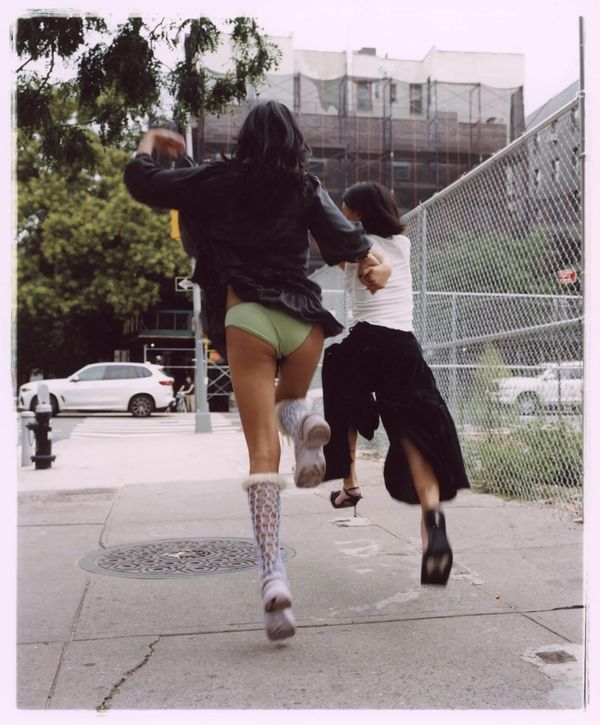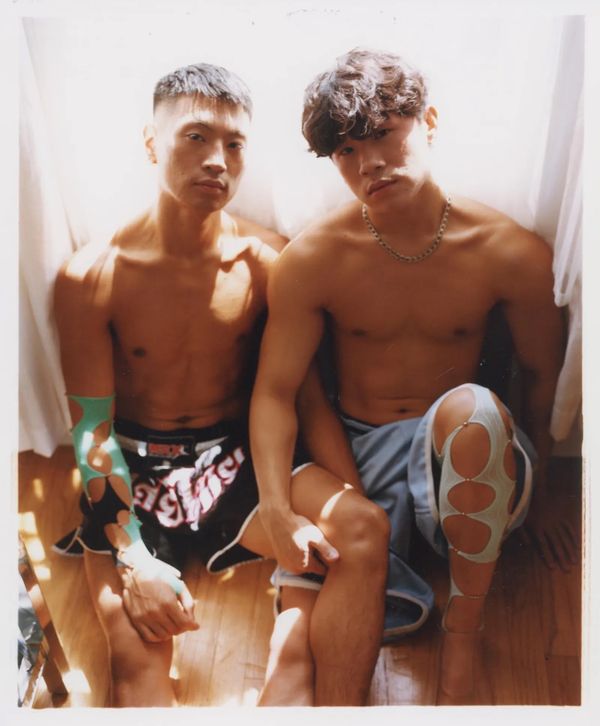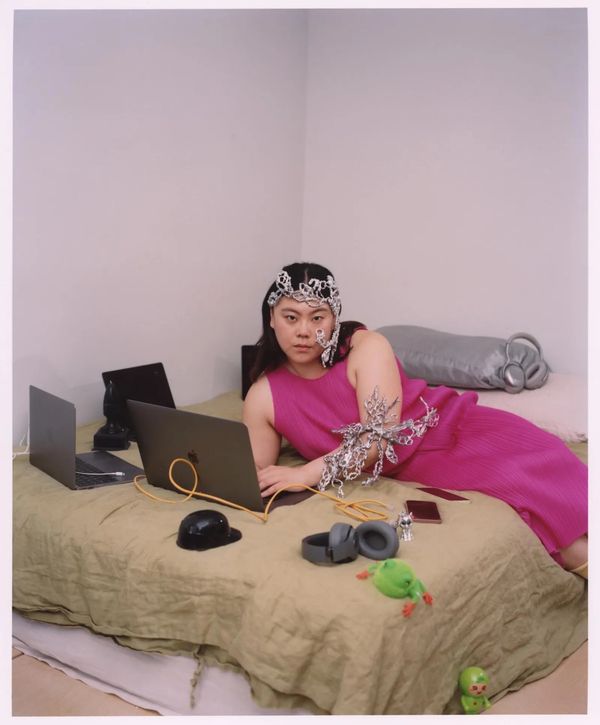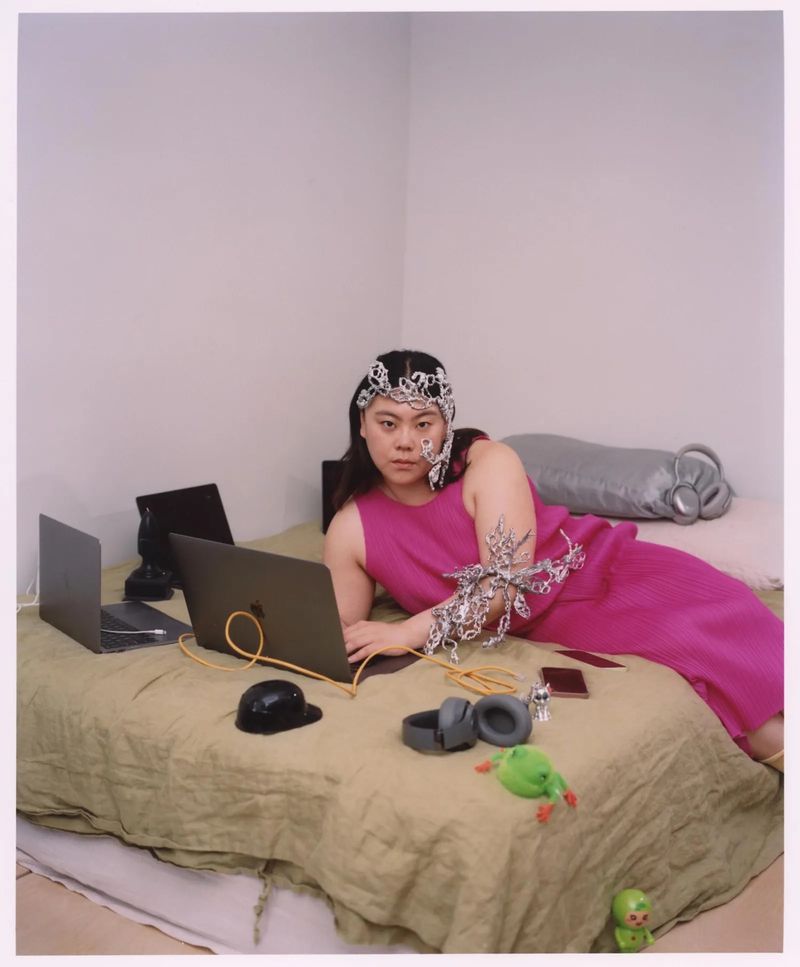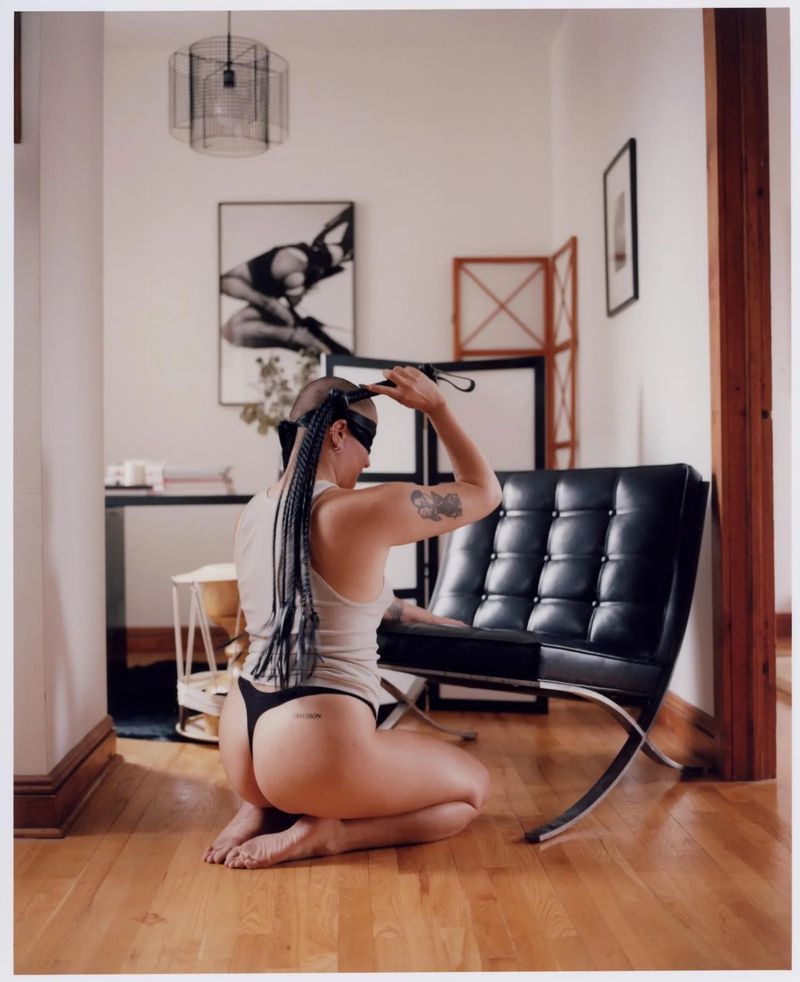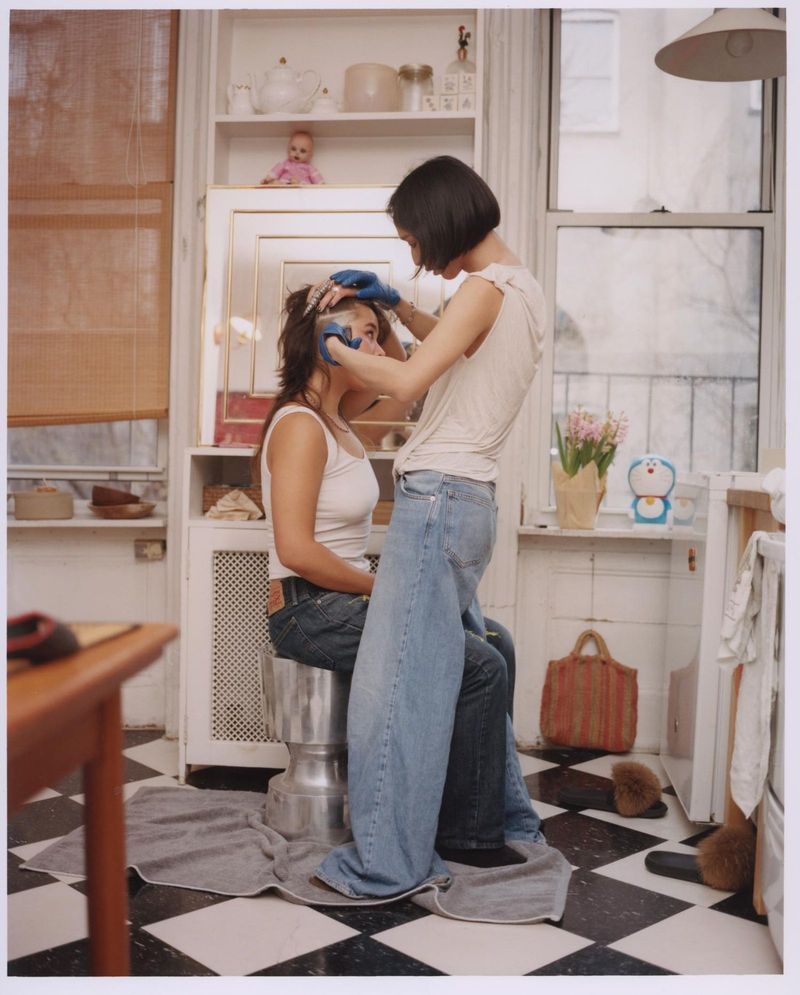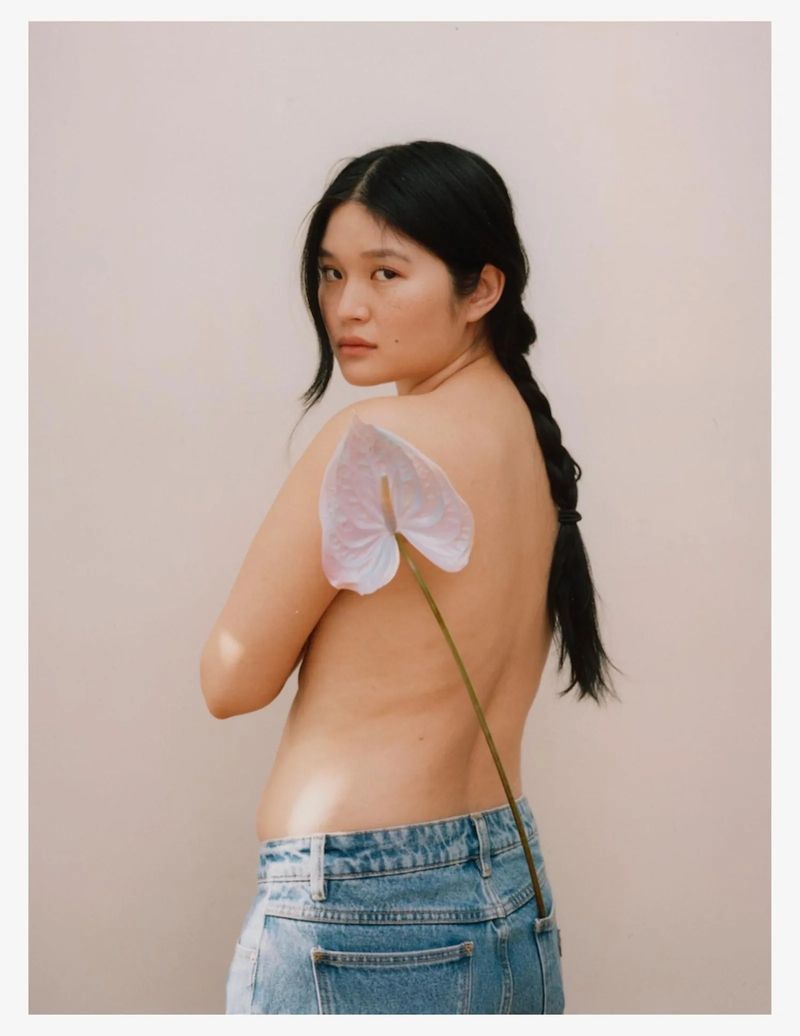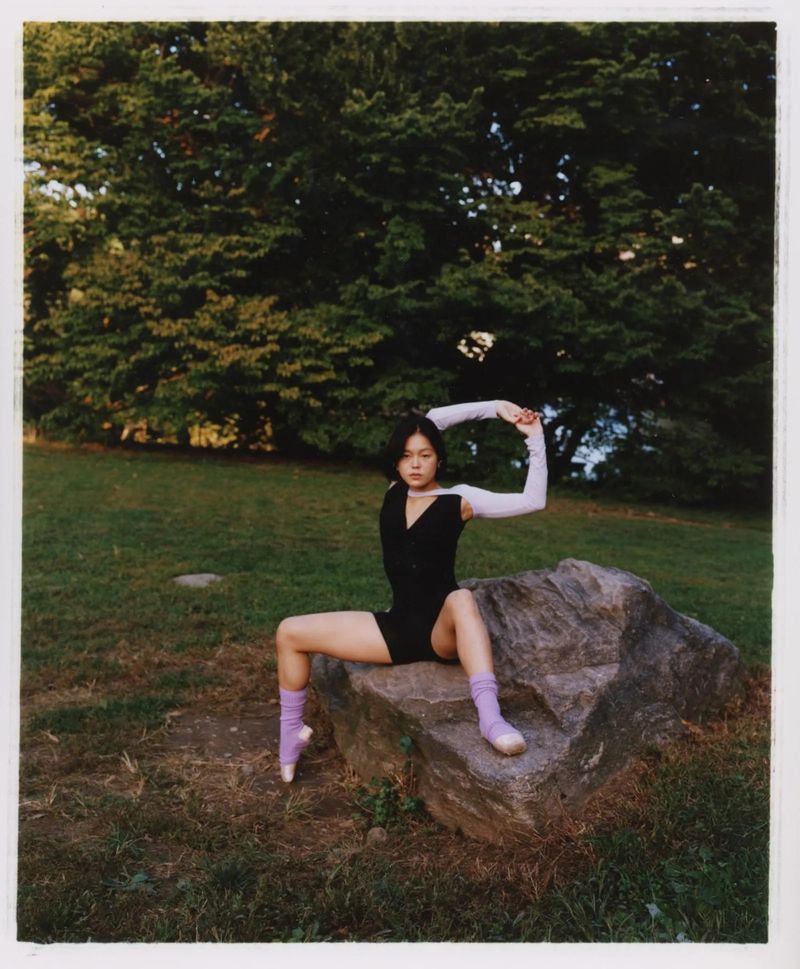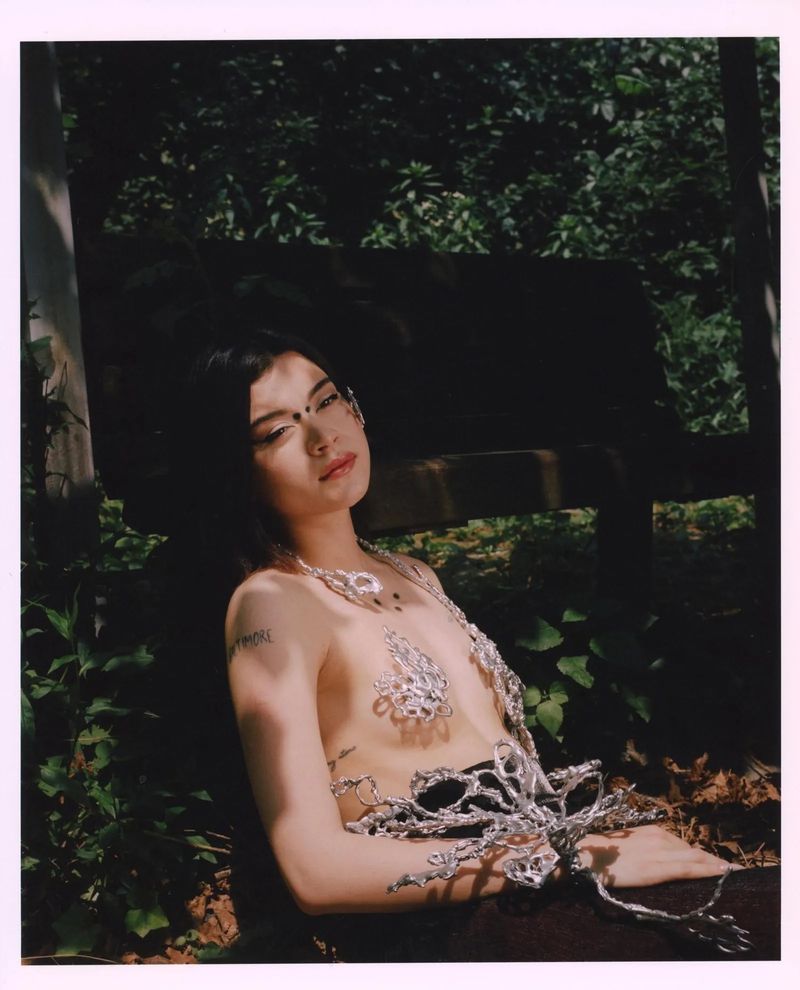Beyond Stereotypes: Ramona Jingru Wang's Photographic Ode to Hybridity and Individuality
-
Published4 Apr 2024
-
Author
Ramona Jingru Wang's project, "My friends are cyborgs, but that's okay," challenges Asian stereotypes in media, while exploring the depth of human complexity beyond societal norms.
Delving into the intricate tapestry of cultural representation, Ramona Jingru Wang embarks on a personal journey, exploring the portrayal of hybrid identities with a keen focus on her own Asian heritage.
The title of her work, My friends are cyborgs, but that's okay, derives from a Korean film, just slightly modified; it focuses on the representation of Asians as depicted in the mainstream media industry and society.
“I was photographing my friends for their casting photos, and then I was thinking that they kind of look like cyborgs visually,” Wang says. “I wanted to explore more about their life, see how their identity is hybrid, how they fit into mainstream society.”
Curiously, in the streaming media and movies industry, Asian actors and actresses often portray cyborg characters, Wang noted, depicted as robotic, cold—or at times very sensual—reinforcing existing societal perceptions. “It kind of fits into this stereotype,” she says.
But with photography, Wang aims to explore alternative perspectives and possibilities. Cyborg characters don't have to conform to stereotypes, and she photographs each person according to their unique life and background, safeguarding their individuality. While some images may be dramatized and retain stereotypical cyborg qualities, there's a deeper complexity to them, she explains. It's a hybrid approach that acknowledges multiple facets, rather than a one-sided portrayal.
Each of her friends is depicted in a specific moment of quiet or tension, captured during a movement or action that is profoundly human, yet, imbued with the cunning of irony, these portrayals confer upon them unusual traits that renders them cyborgs.
In one instance, she photographed her friend Han Na in her bedroom—a professional plus-size model who has worked for a highly renowned agency, but she also holds a position at Google. "It's a very stereotypical Asian character: You're good at science, you're good at math, you're working for a reputable company — which can seem very robotic," Wang says. However, she acknowledges, her friend Han Na embodies much more than this: she is a vibrant individual who engages in modeling and stand-up comedy. “There's so many different hers.”
Wang photographed her friend in her bedroom, dressed in a knitted pink dress, with distinctive jewelry that hints at her fashion sense. Han Na is surrounded by laptops and tech gadgets, either provided by Google or used for work — a juxtaposition that captures the complexity of her character, and in general, of people’s lives and personas.
Wang based part of her work and observation on her own experience. Moving to the U.S. at 18 for college, the most striking aspect of her experience abroad was to encounter many nuances and stereotypes linked to the concept of identity and belonging, something she didn’t experience in her own country. In China, she explains, “we don't think about this Chinese or Asian identity that much. It isn't something we dwell on because it's the norm.” However, after moving to the U.S. where white people are the majority, labels become more apparent and, in this new environment, people tend to generalize. Many of her Chinese American friends reported similar experiences as they searched for their roots and cultural identity.
However, Wang has started noticing some openings, especially in filmmaking, where more diverse, multidimensional Asian characters have been portraited.
Overall, her photography should be viewed as a cohesive whole, a playful exploration of these characters based on real-life stories about their experiences. In certain photographs, she incorporated props—a jewel, a flower—to enhance the visual portrayal as more hybrid: the handmade jewelry, crafted by a designer friend, combines organic and metallic materials evoking a blend of machinery and nature. In another photo, a flower emerges from the back pocket of her friend Sam’s trousers, the sinuous tail of a wild creature playfully peeking at us.
Once again, each character reveals diverse facets—some concealed, others more visible—of intellectual types who possess a creative side, a sensual persona who harbors underlying fragility and emotions. This encapsulates the essence of a true cyborg, she says, and of her work: they are, we are all, in essence, hybrid beings.
--------------
All photos © Ramona Jingru Wang, from the series My friends are cyborgs, but that's okay
--------------
Ramona Jingru Wang is a Chinese artist based on the internet and New York. Her work explores how images intervene with our reality and create connections among people and space, investigating how we care for each other through photographs. Find her work on PhMuseum.
Lucia De Stefani is a writer and editor focusing on photography, illustration, and everything teens. She lives between New York and Italy. Find her on Instagram and Twitter.
